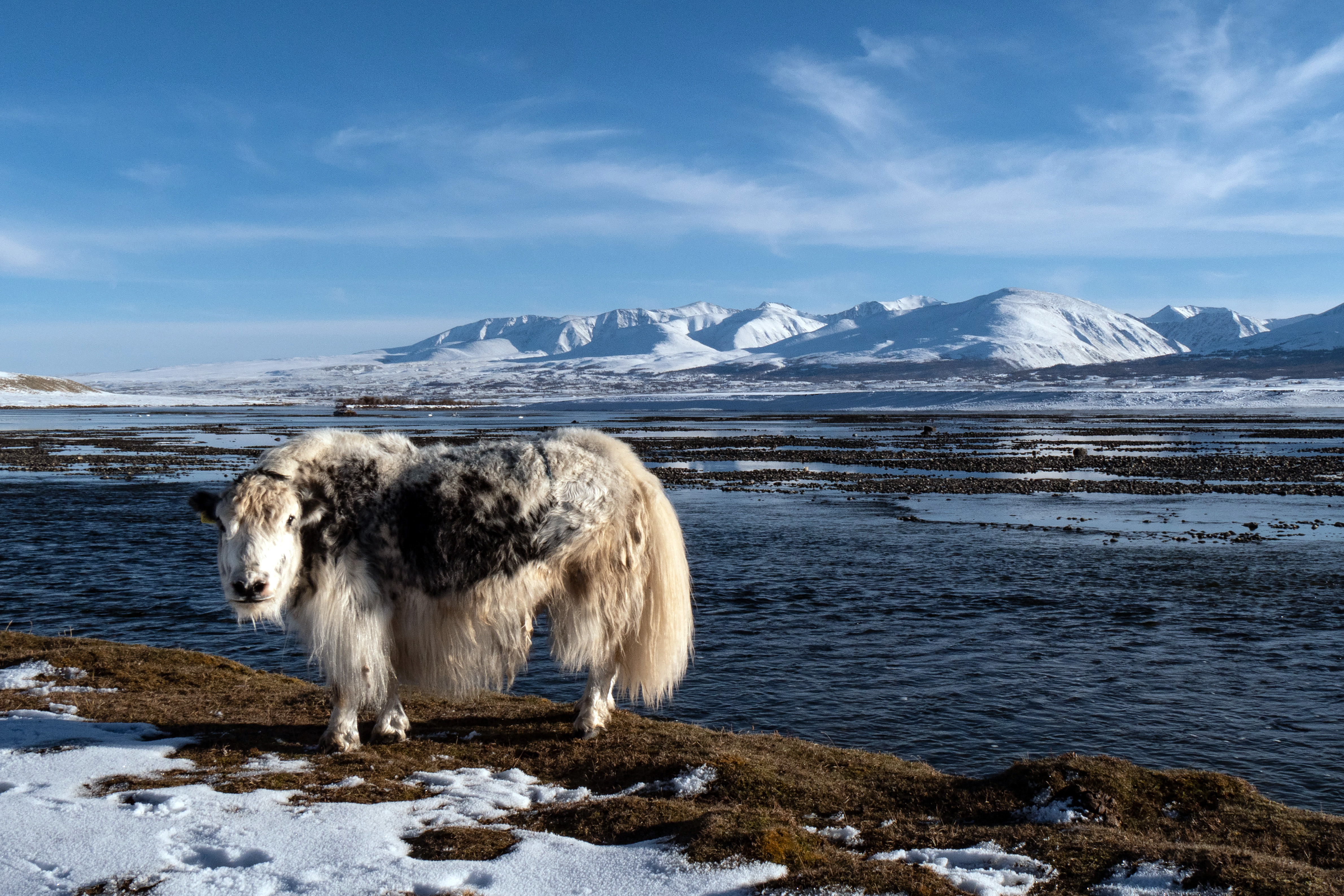Core area “Conserving nature and natural resources, protecting life on Earth” Protecting ecosystems, conserving biodiversity
A yak at Lake Khoton in Mongolia
The country’s most important economic sector, the extractive industry, is a particular pressure on the environment. Coal and ores are often extracted using open-cast mining, which causes huge damage to natural areas and groundwater levels. Mining also requires large amounts of water, and the country is increasingly threatened by water scarcity as a result.
In many regions, increasing overgrazing is seriously damaging and depleting soils. Soil degradation or desertification are already affecting roughly three quarters of the land surface.
The steppes, deserts and high mountain areas of Mongolia are very sensitive to climatic change. Climate change is already causing a rise in average temperatures, shifts in precipitation levels, an increase in extreme weather events, permafrost thawing, more frequent steppe and forest fires, and damage to trees due to pests.
Mongolia’s government has announced its intention of planting a billion trees by 2030 in order to help counteract climate change and desertification (the “One Billion Trees” movement). Since 2020, the country has also been working with the BMZ to reform its environmental legislation, including the Forest Law and the Law on Special Protected Areas.
So far, some 20 per cent of the country has been designated as protected areas, and there are plans to increase this to 30 per cent by 2030. Surveillance of this extensive area is extremely difficult, however. The authorities managing protected areas currently face a lack of funds, staff and technical expertise.
German activities
In order to preserve Mongolia’s unique natural environment and at the same time improve living conditions for the population, more must be done to promote and manage nature reserves.
At the national level, the BMZ is supporting Mongolia’s Ministry of Environment and Tourism in its efforts to improve the legal framework for protected areas. This includes, among other things, promoting the financial independence of local administrations to enable them to act more autonomously. Based on the new Law on Special Protected Areas, local administrations are also receiving assistance in implementing reforms in the areas of forest protection, waste management and sustainable tourism. In addition, support is being provided for selected protected areas to develop management and business plans and to finance infrastructure projects.
A large proportion of the rural population lives in the buffer zones surrounding protected areas and is dependent on the use of natural resources. Creating income opportunities, for example through ecotourism, is a way to prevent the overexploitation of natural resources and help reduce poverty in rural areas.
These efforts are complemented by media and education campaigns targeting the local people, visitors of protected areas and experts to build knowledge on the value of natural resources and the importance of biodiversity.
As at: 20/06/2024
